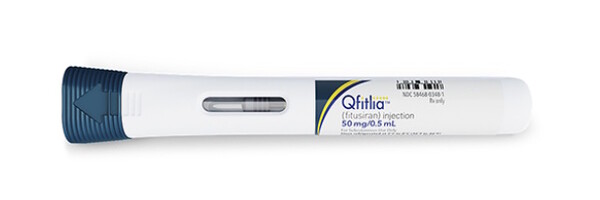Sanofi's non-factor treatment for hemophilia, fitusiran (trade name: Qfitlia), recently received orphan drug designation from the Ministry of Food and Drug Safety (MFDS), paving the way for its domestic launch.
The MFDS designated fitusiran as an orphan drug on May 2 for “routine prophylaxis to prevent or reduce the frequency of bleeding episodes in patients with hemophilia A and B with or without inhibitors of factor VIII or factor IX.”

Fitusiran is a novel therapeutic agent that inhibits antithrombin to prevent bleeding in patients with hemophilia A and B. It is regarded as a potential alternative to overcome the limitations of existing intravenous (IV) therapies.
However, according to the minutes of the ministry’s Central Pharmaceutical Review Committee meeting, members agreed to the orphan drug designation while also highlighting safety concerns, including the risk of blood clots, and the need for a local safety review.
Fitusiran offers prophylactic benefits for hemophilia A and B patients, regardless of inhibitor presence, and is administered as a subcutaneous injection every four to eight weeks. This formulation provides significant advantages in convenience and patient adherence compared to traditional IV factor replacement therapy.
The review panel noted that “few treatments are currently available for hemophilia B patients with inhibitors, and the need for biweekly intravenous injections makes self-administration difficult,” and evaluated fitusiran as a treatment that may address this unmet medical need.
They also acknowledged that fitusiran significantly reduced the annualized bleeding rate (ABR) compared to existing therapies and could contribute to better quality of life. Still, several members expressed concern about safety risks.
Fitusiran’s mechanism of action is based on siRNA technology and works by reducing antithrombin levels. While this helps improve hemostasis, it may also increase the risk of thrombosis.
When the U.S. FDA approved fitusiran in March, it issued a boxed warning for thrombotic events and gallbladder-related adverse reactions. Some panel members noted that, due to past safety concerns in clinical trials, a thorough review of local clinical results would be necessary.
Despite these concerns, fitusiran was considered an “innovative therapy that can overcome the limitations of existing treatments,” especially since it is indicated for both hemophilia A and B, unlike emicizumab (Hemlibra), the only other non-factor therapy currently approved, which is limited to hemophilia A.
With orphan drug designation, fitusiran becomes eligible for accelerated approval without the need to submit bridging clinical trial data.
The panel also determined that bridging data would not be required for approval, citing the well-understood pathophysiology of hemophilia, minimal ethnic variation in drug response, and the relatively high proportion of Asian patients enrolled in the global phase 3 trial.
They also acknowledged that the limited number of hemophilia patients makes local bridging trials overly time- and cost-intensive, potentially delaying patient access to effective new treatments. Therefore, the committee concluded that global clinical data would be sufficient for domestic approval.
Related articles
- [ASH 2024] Photo News: 30,000 global experts gather in San Diego to showcase hematology breakthroughs
- Sanofi Korea and SNUH collaborate to drive digital transformation in clinical trials
- Sanofi hosts event to empower young adults living with Pompe disease
- Personalized prophylaxis becomes new standard in hemophilia treatment
- Sanofi unveils Cambridge Crossing R&D hub, outlining next-gen immunoscience and translational strategy
- Hemlibra shows efficacy in bleeding prevention during exercise for hemophilia A
- Dr. Hwang Tai-ju looks back on a half-century journey of hemophilia treatment
- [Interview] Hemophilia care shifts from bleeding control to quality-of-life management

